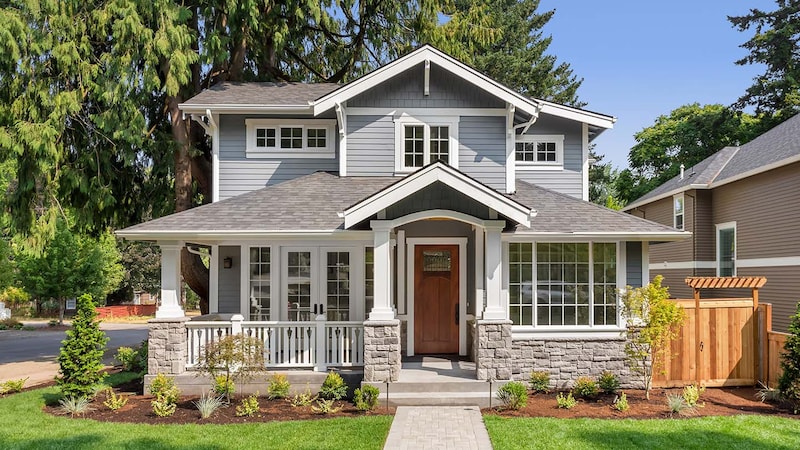Second home vs. investment property: Key differences to consider

Quick insights
- A second home, sometimes called a vacation home, is one you occupy part-time. How long you stay there determines how many days a year you can rent it out.
- Although you can rent out a second home for profit, the IRS limits the number of days you can rent out the home before it’s considered an investment property.
- In contrast, an investment property comes with the inherent goal of producing income by renting out the property full-time.
Second homes and investment properties both represent a property that you don’t plan to live in full-time. While neither is a primary residence, second homes and investment properties aren’t the same.
This guide explores the key differences between second homes and investment properties, financing opportunities and how to choose the right option for your situation.
Second home vs. investment property: Overview of differences
Unlike with a primary residence, the homeowner doesn’t live in a second home or investment property full-time.
Here’s a look at the differences between second homes and investment properties.
- Usage: Second homes are often for personal use. But the Internal Revenue Service (IRS) allows second homeowners to retain the “second home” classification by staying in the property 10% of the total days you rent it out or 14 days, whichever is greater. In contrast, investment properties are rented out to tenants to generate income.
- Tax advantages: Second homeowners can’t deduct maintenance expenses. But investment property owners can deduct certain property-related expenses.
A tax advisor should be consulted for more information or advice.
What is a second home?
A second home is a separate residence from your primary residence. Typically, homeowners use second homes on a part-time basis for personal enjoyment. For example, you might spend the summer at a property in your favorite beach town.
Homeowners can consider a property a second home if:
- They use the property for at least 14 days per year.
- They live in the property for at least 10% of the total days it’s rented to others at a fair rental rate.
For example, if you rent a property for 300 days per year, you’d need to use the property for at least 30 days per year to retain its second home classification.
What is an investment property?
An investment property is one you purchase with the intention of building an income stream. Most investment properties generate rental income over time.
For example, you might rent out a beach house to vacationers to generate income while building equity in the property over time.
Is financing different for investment properties and second homes?
Obtaining financing for an investment property or second home is often more difficult than getting approved for a mortgage on a primary residence. Financing options vary based on your unique situation. Generally, lenders treat investment property loans and second home loans differently.
Below is a closer look at the financing details regarding each type of property:
Financing a second home
When financing a second home purchase, homeowners can often consider a conventional loan. Additionally, homeowners with significant equity in their primary residence could pursue a cash-out refinance to obtain the necessary funds to purchase a second home.
For second homes, Fannie Mae® allows for loan-to-value (LTV) ratios of 90%, which means you’ll need to make a minimum down payment of 10%.
Financing an investment property
Financing an investment property generally requires a substantial down payment, good credit score and sufficient income. Similar to a second home, prospective investment property owners can tap into their home equity in a primary residence through a cash-out refinance or home equity loan to fund the purchase of an investment property.
For investment properties, Fannie Mae® allows for LTV ratios of up to 85% on single-unit purchases, which means you’ll need a larger down payment of at least 15%.
What is better: A second home or an investment property?
Second homes and investment properties serve different purposes. As such, one isn’t necessarily better than the other. Instead, the right option varies based on your goals.
When a second home makes sense
A second home might make sense when:
- You want to spend some amount of time in a selected location away from your home each year.
- You’ll live in the property for at least 10% of the number of days you plan to rent it out.
Second homes can offer a worthwhile addition to your financial portfolio. Before moving forward, confirm the additional costs fit into your budget.
When an investment property makes sense
An investment property could make sense when:
- You want to generate an income stream through a property.
- You want to enjoy some tax advantages.
An investment property can help you build income and make progress toward financial goals. Before buying an investment property, look at the numbers carefully to confirm you’ll reach your financial objectives.
FAQs
Can I convert a second home into an investment property?
Yes, it’s usually possible to convert a second home into an investment property. Typically, the process involves finding tenants and updating your insurance policies.
What is the 2% rule for investment property?
The 2% rule for investment properties suggests that an investment property should generate at least 2% of the property’s purchase price in rental income each month. For example, a property purchased for $150,000 would need to generate $3,000 in monthly income to satisfy the 2% rule.
Is a second home considered an investment property by the IRS?
No. For a second home to be considered an investment property by the IRS, it must be stayed in for more than 14 days per year or 10% of the total days you rent it out—whichever is greater.
Is it hard to get a second home loan?
Generally, lenders consider second home loans to be riskier than loans for a primary residence. This increased level of perceived risk may lead to stricter financing requirements. But the difficulty of obtaining a second home loan varies based on your unique situation.
Is it hard to get an investment property loan?
Like second home loans, investment property loans are generally considered higher risk than primary home loans. As such, lenders may impose stricter requirements. But again, the hurdles you’ll face in getting an investment property loan depend on your situation.
In summary
If you’re buying an investment property or second home, the financing mechanics and usage options will vary. Take the time to consider all of your options before moving forward with a home purchase to determine the right strategy for your unique situation.



